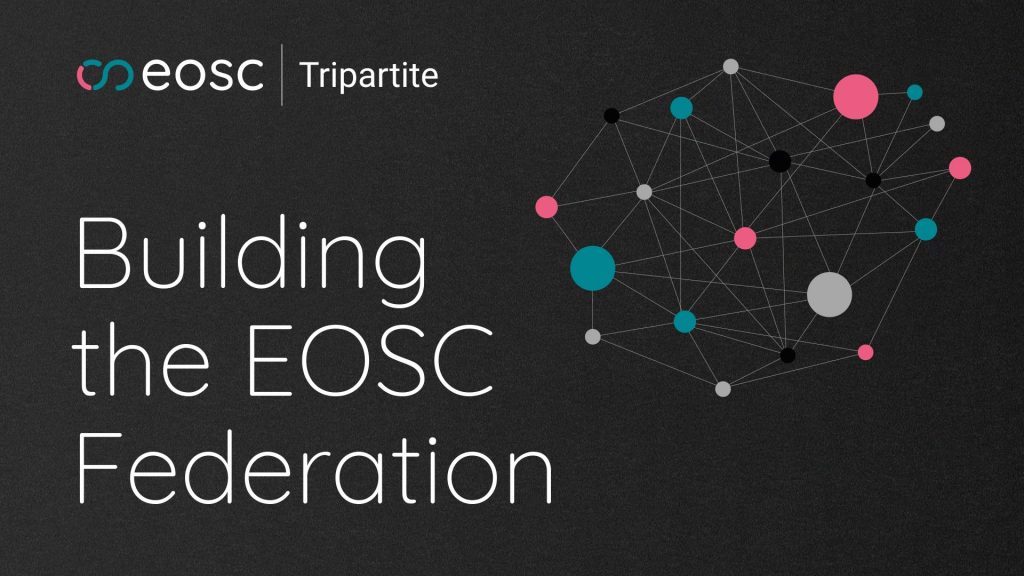
The ambition of the European Open Science Cloud, known as EOSC, is to develop a ‘Web of FAIR Data and Services’ for science in Europe. The implementation of EOSC is based on a long-term process of alignment and coordination pursued by the Commission since 2015.
EOSC stands at the intersection of Europe’s strategic priorities, offering solutions to critical challenges in research, innovation, and societal development. As a transformative tool, EOSC fosters digital sovereignty, inclusivity, trust, and transparency in the research and innovation domain.
EOSC is designed not only to support the Open Science movement but also to underpin Europe’s broader competitiveness agenda. The deployment of a network between data repositories and services will be instrumental for Open Science to progress in Europe. For all of these reasons, the EOSC Federation of nodes is being created.
The ambition of the European Open Science Cloud, known as EOSC, is to develop a ‘Web of FAIR Data and Services’ for science in Europe. EOSC will be a multi-disciplinary environment where researchers can publish, find and re-use data, tools and services, enabling them to better conduct their work.
EOSC builds on existing infrastructure and services supported by the European Commission, Member States and research communities. It brings these together in a federated ‘system of systems’ approach, adding value by aggregating content and enabling services to be used together.
This environment will operate under well-defined conditions to ensure trust and safeguard the public interest. Expectations of service providers and users will be made explicit to ensure appropriate behaviour.
EOSC will improve the situation for researchers in many ways, namely by:
- Enhancing scientific research by providing access to a weath of data and research outputs from various fields and institutions.
- Fostering innovation by making it easier for researchers to share, collaborate and build on each others’ work.
- Improving transparency and reproducibility of research by making data and methods more open and accessible.
- Reducing data silos and duplication of efforts by promoting data sharing and reuse.
- Facilitating interdisciplinarity research and cross-sectoral collaboration by making data and resources from different domains more easily available.
EOSC is recognised by the Council of the European Union as the pilot action to deepen the new European Research Area (ERA). It is also recognised as the science, research and innovation data space which will be fully articulated with the other sectoral data spaces defined in the European strategy for data.
Source: European Commission
The European Open Science Cloud (EOSC) is a key enabler of the digitalisation of research infrastructures while delivering the European Data Space for research data. It has potential to become the most generally used infrastructure in Europe.
The Heitor report
Heitor et al. Align, Act, Accelerate: Research, technology and innovation to boost European competitiveness
